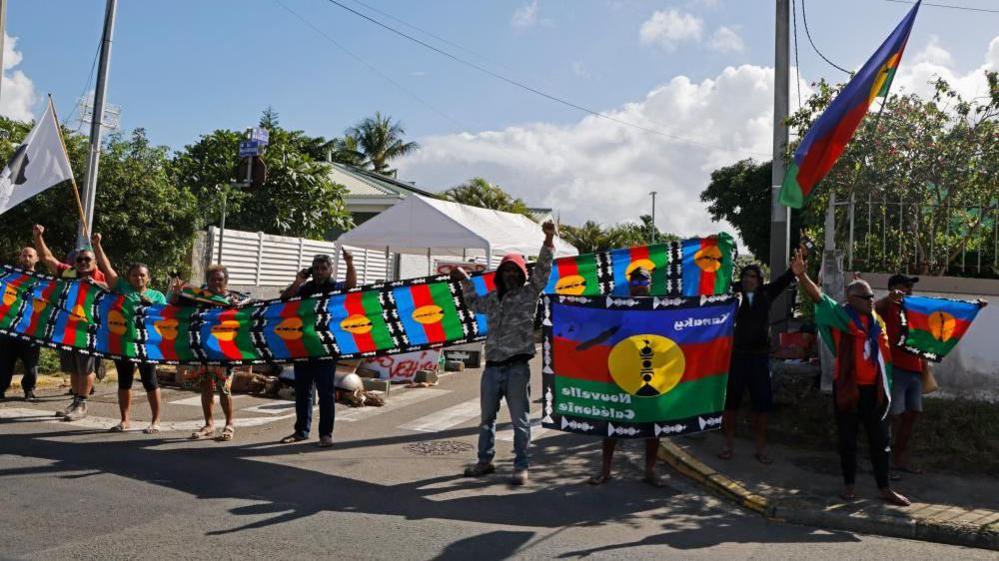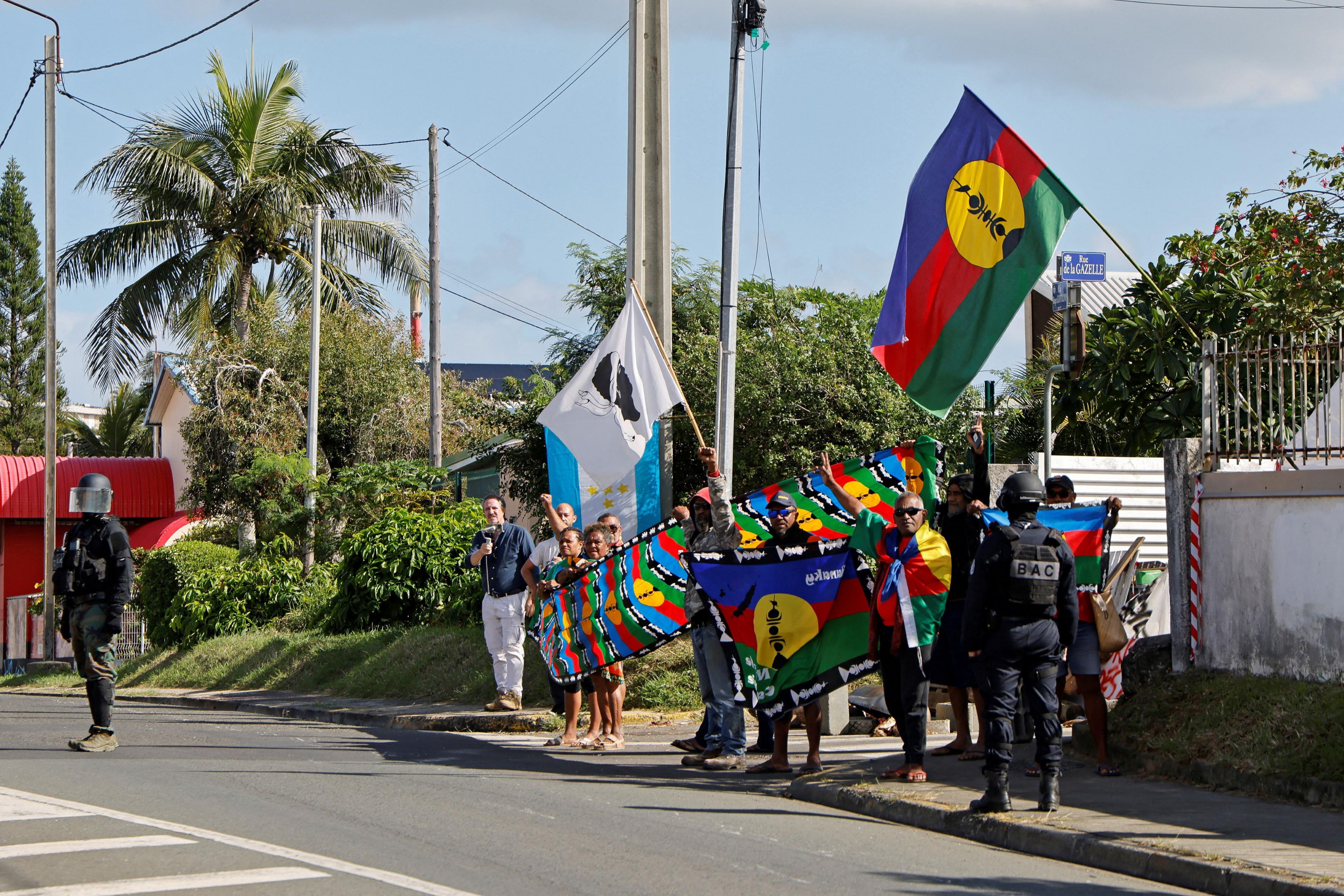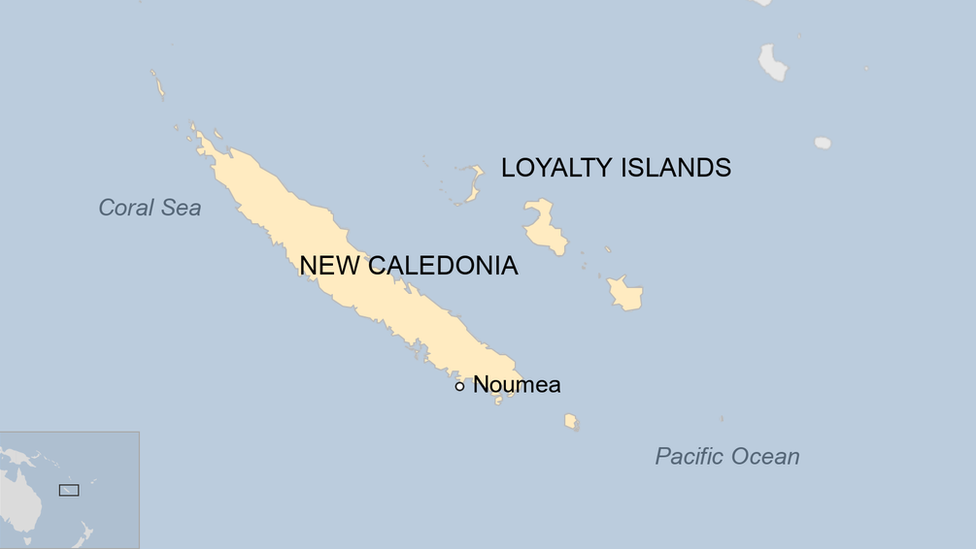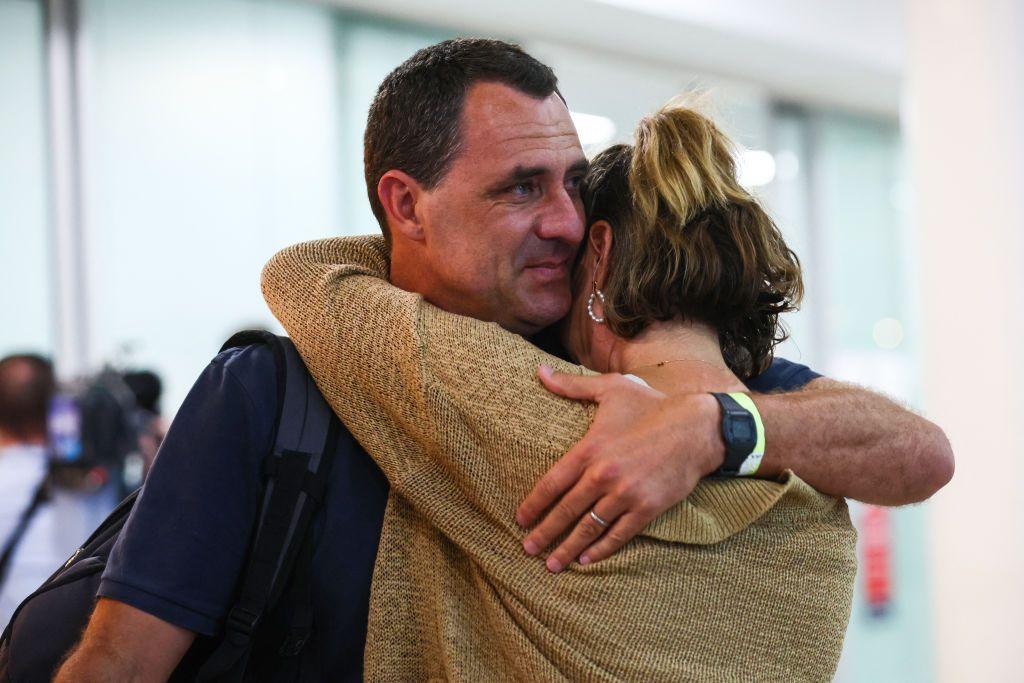Protester killed by policeman in New Caledonia

Demonstrators lined the streets during French President Emmanuel Macron's visit
- Published
A French policeman has killed a protester in France's Pacific territory of New Caledonia.
Seven people have now died in a week of violence sparked by controversial voting reforms.
Prosecutor Yves Dupas, in New Caledonia's capital Nouméa, said the officer came under attack from demonstrators and fired his weapon on Friday.
The death comes a day after a visit by French President Emmanuel Macron who said he would seek a new political agreement on the reforms.
The officer, who is now in custody, used his gun as he and a colleague were attacked by about 15 people, Mr Dupas said.
The protester killed was a 48-year-old man, he added.
Protests in New Caledonia, a group of islands between Australia and Fiji, have been led by the indigenous Kanak community, who make up 40% of the population.
Currently, voting in the territory is restricted to indigenous Kanaks and those who arrived from France before 1998.
The planned reform would see more French residents - including any who have been in New Caledonia for at least 10 years - able to vote.
Many Kanaks are worried that their political power could be diluted and fear it will make any future independence referendum harder to achieve.
A manslaughter inquiry had been launched following Friday's incident. Such legal moves are usually automatic in France when a policeman kills a person.
"In circumstances that have yet to be determined, the officer is said to have fired a shot from his service weapon to extricate himself from the physical altercation," Mr Dupas said in a statement.
"Initial findings show traces of blows to the officers' faces."
Mr Macron, on a one-day visit on Thursday, declared a pause in the reform.
He stopped short of following demands by those seeking independence that it be withdrawn altogether. But said he wanted to use the following weeks to try and reach an overall political deal on the island's future.
The French government has sent in thousands of extra police forces over the past week to help restore calm.
The island territory is marked by deep economic disparities, according to census data.
The poverty rate among indigenous Kanaks, the largest community, is 32.5%, compared to 9% among non-Kanaks, according to the 2019 census.
France colonised New Caledonia in 1853 and made it an overseas territory in 1946, granting rights to Kanaks.
Under the 1998 Nouméa Accord, France agreed to give New Caledonia more political autonomy and to limit voting in provincial and assembly elections to those who were residents then.
More than 40,000 French nationals have moved to New Caledonia since.
Three referendums on independence were held between 2018 and 2021. The first two showed slim majorities for remaining part of France. The third was boycotted by pro-independence parties after the authorities refused to postpone voting due to the Covid epidemic.
This month's unrest has caused hundreds of millions of dollars worth of damage.
Mr Macron said a state of emergency would be lifted when all the protesters' barricades had been dismantled.
He described the violence as an "unprecedented insurrection movement".
Nouméa airport remains closed to commercial flights.
Military flights airlifted about 300 Australian and 50 New Zealand holidaymakers out of the territory.
They reported witnessing arson and looting, and experiencing food shortages.
Related topics
- Published23 May 2024

- Published24 May 2024

- Published22 May 2024
